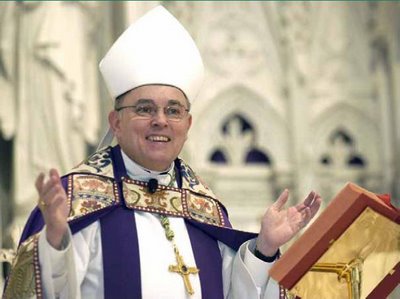
Catholic bishops don’t have to wait for a change in doctrine in order to help, instead of hurt, LGBT people. Here are four proposals.
At age 54, and after 25 years as a Roman Catholic priest, I left the priesthood in November 2014, and came out as a gay man.
Seeking to be more honest with myself, and understanding the limitations that come with being a gay priest, this was a choice that was healthiest for me. There is no infrastructure within the Church to support me as a gay man. And the Church is not at her best when speaking to and about people who are lesbian, gay, bisexual, transgender (LGBT), or even questioning their sexual orientation or gender identity.
Before leaving, I had a unique role in priesthood in that I provided leadership training, development, and consulting primarily for bishops and priests throughout the country. I served them, I assisted them, and I coached them.
Because I thought I had a credible relationship with bishops, in particular, I invited them to seize an opportunity regarding the LGBT community and the recent Supreme Court decision on marriage equality and October’s Synod on the Family at the Vatican, in which bishops and cardinals will discuss a range of issues related to family and evangelism.
The Church, and the bishops who lead it, have an opportunity to more thoughtfully and sensitively understand who we are as LGBT persons—and to use language that is responsible and respectful when speaking to us and about us. So, this past April, I reached out to the bishops I knew and offered my counsel.
Alas, only one of the 82 bishops I contacted has chosen even to respond. I found the non-response to be a great disappointment.
Still, as someone who was a Roman Catholic priest and who understands my own sexual orientation, I am offering to be a part of the solution for the Church leaders in their struggling relationship with LGBT people. Here are four things the leaders of the Roman Catholic Church can do, without changing Church teaching on sexuality:
 First, as the Hippocratic Oath holds, they should do no harm: pause the public statements that deny LGBT people’s experience of themselves, that fan the flames of fear regarding religious freedom in America, and that perpetuate misunderstanding. Enter a period of silence and reflection—not hesitation, but consideration.
First, as the Hippocratic Oath holds, they should do no harm: pause the public statements that deny LGBT people’s experience of themselves, that fan the flames of fear regarding religious freedom in America, and that perpetuate misunderstanding. Enter a period of silence and reflection—not hesitation, but consideration.
Second, to open such a period of reflection, bishops should organize an ad-hoc committee of the U.S. Conference of Catholic Bishops (USCCB) that seeks to understand the LGBT community and persons—hopes, contributions, concerns, and self-identifying language. This understanding, then, influences a common national plan to use language and Catholic terminology that is pastorally respectful and inclusive whenever the LGBT community is addressed or discussed.
The next step would be to revisit the 2006 pastoral document, Ministry to Persons with Homosexual Inclinations, and the Pope John Paul II letter to bishops, Letter to the Bishops of the Catholic Church on the Pastoral Care of Homosexual Persons, so as to update recommendations and language. For instance, gay persons are not persons who have “homosexual inclinations.” To refer to our expression of sexual love as “intrinsically disordered,” is neither helpful nor useful.
Finally, put in place an education process, through the USCCB, to enable all ecclesial leadership—ordained and lay—to live a life of ministry and/or celibacy with more authenticity and self-acceptance. Currently, gay and bisexual priests and bishops, for the most part, are quietly closeted, even amongst themselves.
This sort of leadership can reap significant benefits for the Roman Catholic Church, both tangible and intangible:
First, bishops will finally be able to effectively demonstrate pastoral care and relevance to LGBT persons and all those with whom they relate and associate. Many members of the flock, the people of God, are LGBT. They are a part of families, and many of them worship as Catholics. And, of course, many of them have left the Church. This is an opportunity to exercise care and leadership and sensitivity.
Second, understanding LGBT persons and respecting their identities facilitates sensitivity when speaking about issues, concerns, and hopes—whether it applies to the Church or society. In theological terms, it manifests the love of God.
Third, it strengthens episcopal credibility. Ordained and professional ecclesial leaders will better respect bishops, and seek them out for guidance on how to better care for, speak about, and minister to LGBT persons—and how that translates into a holistic ministry for the full people of God.
Even in the absence of doctrinal change, promoting understanding, sensitivity, and proper language, are acts of profound ministry. Through them, all of us become more inclusive, understanding, and respectful—even if we don’t always agree on issues or teachings.
My purpose is to be of service to the Church on this issue. There is a unique opportunity here given the events that are shaping people’s lives in the Church and throughout the nation. The right and responsible thing to do, as an act of leadership, is to understand LGBT persons, and to use language that respects them by listening and seeking to understand the joys and challenges they face in their lives. Everyone benefits, and face of God is experienced more deeply.
Complete Article HERE!



